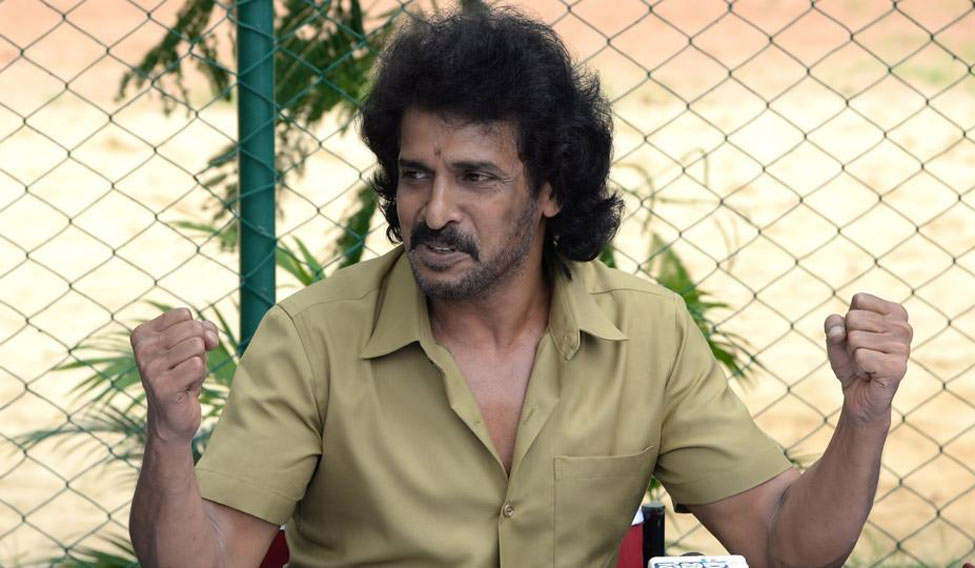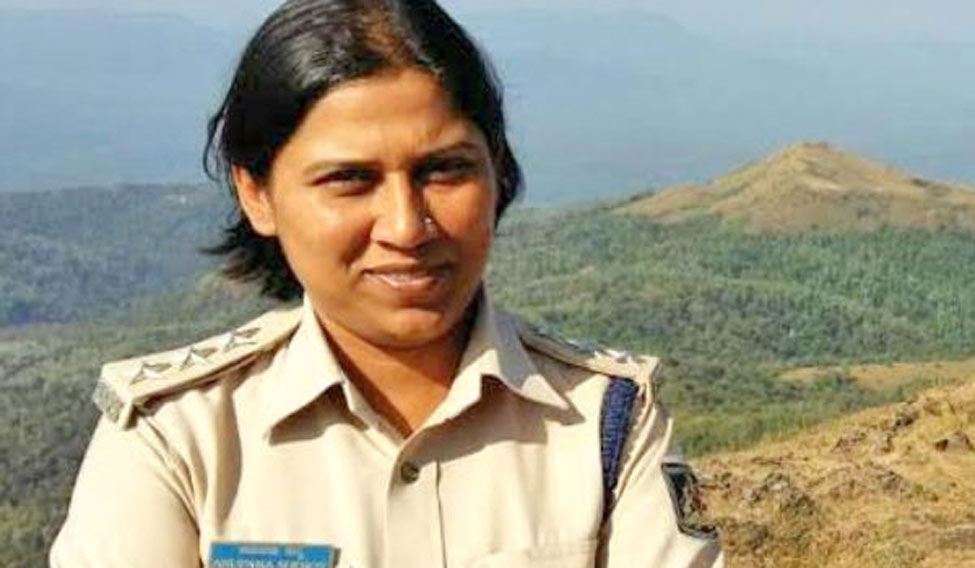New political outfits are mushrooming in the poll-bound state of Karnataka, experimenting new formulas and alternatives. Despite the three major parties—Indian National Congress, Bharatiya Janata Party and Janata Dal (Secular)—dominating the state's political space, there has been no dearth of new experiments in alternative politics. In the past, new political parties were predominantly floated by disgruntled political leaders, even though none has lasted long enough to make an impact. But this time, it is not just the leaders alone who are launching new parties, but a mix of people from different walks of life.
Former deputy superintendent of police of Kudligi (Bellary), Anupama Shenoy, who had quit her job following a spat with the then excise minister, P.T. Parameshwara Naik, launched a new political party on November 1, coinciding with the Kannada Rajyotsava.
Shenoy declared the launch of her party named Bharatiya Janashakthi Congress (BJC) at Kudligi, where she worked as DySP, putting speculations over her joining the BJP to rest. Shenoy was joined in by RTI activist Rajashekhar Mulalim, who had exposed the sex-tapes of former excise minister H.Y. Meti, and local farmers' leader Darur Purushothamagouda, who released the party flag which is saffron, white and green in colour with India's map in the centre.
“People are disappointed with the present political system. Those who have leadership qualities do not get the right platform. I decided to float a party to help deserving people enter the political system. My party will always be against any form of corruption,” said Shenoy, adding that her party would field candidates in all 224 assembly constituencies in the 2018 assembly elections.
A celebrated actor-director of the Kannada film industry, Upendra, who had made socially relevant movies reflecting the political atmosphere, floated a new political party recently. Upendra who debuted in 1992, has acted in 45 films. In 2010, during the release of his movie, Super, he hinted that he was keen to take a plunge into active politics. The movie was a political satire, showcasing Upendra's idea of India in the year 2030.
“My cinema is for the thinking individuals, and my party for the enlightened and well informed,” said Kannada Upendra after launching his new party, Karnataka Prajnavantha Janata Paksha (Karnataka Enlightened People’s Party).
It is not my party but a party of the people, clarified the actor, who turned up at the launch ceremony wearing a khakhi shirt, a symbol of the working class. All his supporters including his wife and mother, too, sported khakhi shirts.
“Those who are passionate about the cause can join me. It has always been my dream to make a change. When I am 70 years old, I should not regret for not trying anything (good) for my society,” said Upendra, adding that his party wants an overall transformation of the society.
“Free education for all, transparency in governance and a new political culture where people are the masters. We need smart villages and not smart cities. Our party's membership forms will not have a column for the caste. Our mobile app and website will be launched on November 10,” said Upendra, adding that he wanted people with great ideas to join him to make a difference. His party plans to field candidates in all 224 seats. “We have 70 potential candidates, but people are reluctant to contest elections. I believe, even if we lose the first time, we should contest again,” said Upendra hinting that his party is here for a long haul.
 Upendra
Upendra
Last year, anti-corruption activist and Samaj Parivarthan Samudaya (SPS) founder president S.R. Hiremath announced that a coalition comprising of Jan Sangram Parishat, Samaj Parivarthan Samudaya and other like-minded organisations would enter electoral politics to work towards an able administration and social justice. He also shared his plans to contest the general elections in 2019.
In March 2017, Hiremath joined the Swaraj India, a party which is an offshoot of the Swaraj Abhiyan, a movement started by Yogendra Yadav, Prashant Bhushan, Prof. Anand Kumar and many like-minded people hoping to build constructive politics.
The state is not new to the recent political try-outs. The state has witnessed many new political outfits rise and eventually fade out. Each of them has been floated by political bigwigs. Of them, Karnataka Kranti Ranga (Karnataka Revolutionary Front and also known as Kannada Kranti Ranga) was a regional party formed by Devaraj Urs in 1979, as a splinter party of the Indian National Congress. Subsequently it came to be known as the Congress (Urs) before it finally merged with the Janata Party.
In 1983, the KKR was revived by Sarekoppa Bangarappa, but the party was again merged with the Congress before the 1990 elections.
The Sarvodaya Karnataka Paksha (SKP) originated from the Karnataka Rajya Raitha Sangha (KRRS), a farmers' movement launched in 1980 by stalwarts like Prof. M.D. Nanjundaswamy, H.S. Rudrappa and N.D. Sundaresh, has been fielding its candidates since 1994. Recently, the SKP, fuelled by farmers' movement in Karnataka, merged with the Swaraj India. Hiremath, Kannada writer Devanur Mahadev, and farmer activist and SKP's Melukote MLA K.S. Puttannaiah identified themselves with the new outfit.
Mahima Patel, a first-time legislator from Channagiri constituency in Davangere and son of late former chief minister J.H. Patel floated a new political party, Suvarna Yuga on November 14, 2007. Patel had walked out of the JD(S) after the party refused to hand over power to the BJP, as per the power sharing (20:20) pact. Patel cherished to usher a “golden age” in politics just as the party's name suggests. He was opposed to wealth creation through politics and “ugly display” of wealth during electioneering.
Karnataka Janata Party (KJP) was launched by Lingayat strongman B.S. Yeddyurappa in December 2012 (though the party had been registered by one Padmanabha Prasanna in April 2011). After being forced to step down as the chief minister following corruption charges, a sidelined Yeddyurappa resigned as the BJP MLA and withdrew his primary membership from the party. He formally launched KJP in a mega convention held at Haveri on December 9, 2012 and also dared the BJP to dissolve the Assembly.
In the 2013 Karnataka Assembly Elections, KJP won only six out of the 203 seats it had contested. But it managed to secure 10 per cent of the total votes polled. This was enough to cause a dent in the vote share of BJP, which was reduced to just 40 seats. Under Yeddyurappa's leadership, the saffron party had come to power after wresting 121 seats in the previous elections.
In September 2013, Yeddyurappa announced that his party would support the BJP (NDA) to ensure Narendra Modi's victory. On January 2, 2014, Yeddyurappa announced the merger of KJP with the BJP to contest the Lok Sabha elections as a single party. While five KJP MLAS welcomed the merger, Aland MLA B.R. Patil refused to join the BJP.
Needless to say, most regional parties did not survive the test of time. But many believe that a political vacuum still exists in the state. With the two national parties wresting power alternately and the longest surviving regional party JD(S) emerging as nothing more than a kingmaker, ushering in an era of coalition, the political climate in the state gives hope to the likes of Shenoy, Upendra or Hiremath to tread the unbeaten path and flirt with the idea of alternative politics.






